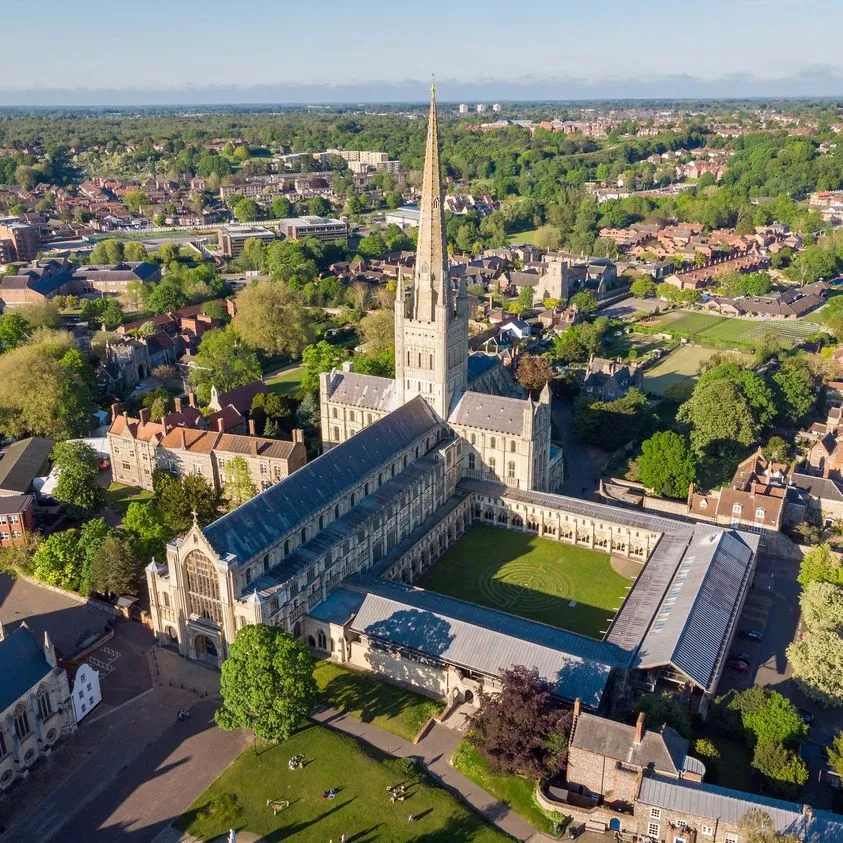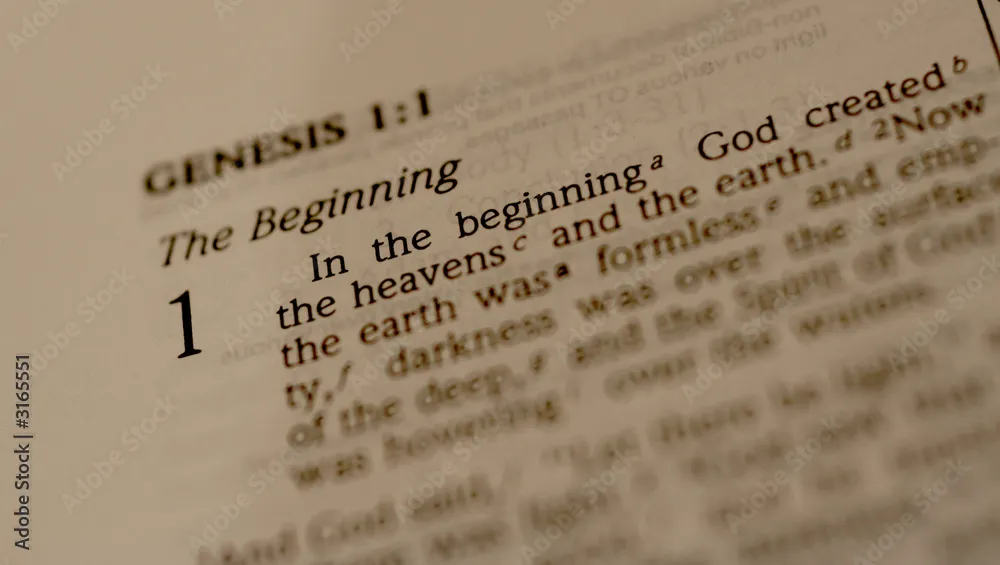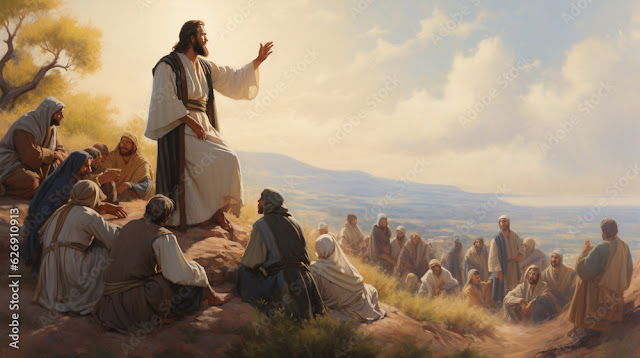Especially That We May Prophesy
(Image: iStock: Chonlatee Sangsawang)
We tread warily towards the new year, desperately praying and, maybe, shaking our fists, too with indignation and outrage at what is going on around us. Not only concerning the disproportionate and wicked violence Israel has unleashed on the people of Palestine (from both soldiers and settlers, in Gaza and the West Bank), or the hatred of HAMAS and its diabolical terrorism, or the demonic destruction of Ukraine by Satan’s puppet, Putin; but also the wicked, corrupt, and ungodly governance of those in power – or whose ambition it is to wrest such power – here in the UK, in the USA, and elsewhere.
Those who care about the Church - and her witness and work in
the world - are also deeply troubled. Those who really expect her to
behave as an elect, love-driven community reflecting the kingdom of God and
God’s righteousness, and whose hope is in the New Jerusalem of God coming to
unite heaven and earth at last, find themselves troubled, and conceding that
the only prayer that resonates is the one that pleads for judgement to begin in
the very household of God.
For if not with us, then with whom?
The diocese of Norwich, under whose purview comes the
churches I worship with, has declared 2024 a “Prophetic Year.” I don’t know
what they think they mean by that – or indeed, what they might actually mean –
but I feel pretty sure that the implications of such a grand ambition have not
been prophetically understood, nor the absolute demands such an
aim puts upon its people properly calculated. I would like to be wrong; I ask
for their forgiveness, if so.
Pursue love, wrote Paul to the church in Corinth, yet desire earnestly spiritual gifts, but especially that you may prophesy…for one who prophesies edifies the church.
The Pentecostal and Charismatic Evangelical movements of the 18th,19th
and 20th centuries re-imagined the church as a powerful
people, imbued with a new dynamism that resulted from the so-called “Baptism of
the Spirit”: from Azusa Street to the “Toronto Blessing”; from the Hebridean
Revival and the powerful preaching of Wesley and Whitfield; even from Charles
Spurgeon and Billy Graham, Reinhard Bonker or Jack Hayford et al. But
were any of these eloquent and charismatic preachers prophetic, and
did their preaching inspire and inaugurate a truly prophetic koinonia – community
– of love-drenched disciples who in turn discipled prophetic offspring? Has
their legacy challenged the world and changed the church; are more people
taking the kingdom by storm (Luke 16:16) as a result? Or rather, as we witness
in our own day, are more people fleeing the church and throwing their “faith”
overboard? Has discipling been overtaken by deconstruction? Is society joyfully
surprised and seduced by the Gospel, or deeply disdainful of the lies,
hypocrisy, deceitfulness, and duplicity of a corrupted and institutionally
compromised church? You know the answer – as does the diocese of Norwich; but
is anyone honest enough to admit the truth?
What would a Prophetic Year entail then? How would we – do
they – imagine such a church would look like? Is a prophetic Anglican
communion – Church of England - even conceivable? Or any other
denominational/non-denominational configuration, for that matter?
Let’s explore some of the implications of being prophetic,
shall we?
Pillars of Creation: Hubble & Webb telescopes.
Prophetic proclamation is an attempt to imagine the world as though YHWH – the creator of the world, the deliverer of Israel, the Father of our Lord Jesus Christ whom we Christians come to name as Father, Son, and Spirit – were a real character and an effective agent in the world…
Thus,
prophetic preaching takes place in a context where a very different subversive
conversation about reality is available. In many church contexts, of
course, the possibility for such a conversation is eroded or compromised. Such
erosion or compromise makes the task more difficult but for that reason more
urgent. (From The Practice of The Prophetic Imagination, Walter
Brueggemann, Fortress Press, 2012 p.4 – my emphasis.)
Brueggemann’s claim sets out the very essence of what any
concept of being prophetic would require. It demands an absolute trust in the
living God; that God as Father, Son, and Holy Spirit is very alive, very real,
and fully engaged in the world – indeed, universe(s) – we inhabit. As we
shall see, it also insists that not only was Jesus the Christ raised from the
dead and enthroned as King in God’s kingdom, but that that very resurrection,
far from turning the world upside down, turned it right side up. Christ’s
resurrection changed everything. For ever. That fact alone challenges us every
day, and in every way; not least, the Powers That Be, including the church in
its religiosity and reluctance to concede to the Cross.
The
prophet faces a coalition of callousness and established authority and
undertakes to stop a mighty stream with mere words. Had the purpose been to
express great ideas, prophecy would have had to be acclaimed as a triumph. Yet
the purpose of prophecy is to conquer callousness, to change the inner
man as well as to revolutionise history.
It is embarrassing to be a prophet. There are so
many pretenders, predicting peace and prosperity, offering cheerful words,
adding strength to self-reliance, while the prophet predicts disaster,
pestilence, agony, and destruction. (From The Prophets. Abraham J.
Heschel, Prince Press, 1999, p16-17 - my emphasis).
Paul is
saying that we who are in Christ should demonstrate the realities of the age to
come by living them now in this present age…It is this way that we are a
prophetic people. We are not a prophetic people by acting like a band of
psychics making predictions about future events that belong to this age; we are
a prophetic people when we bear prophetic witness to the age to come by living
it now. To be in sync with the age to come is to be out of sync with the
present age. It’s what Nietzsche called prophetic untimeliness. The
person who is truly prophetic is always out of step with the present age.
The church is to live as a prophetic people, not by
predicting future events in the contemporary geopolitical context, but by being
a prophetic witness of the age to come. (From Beauty Will Save The
World, Brian Zahnd, Charisma House, 2012, p137)
The election of Israel was as a prophetic people who
demonstrated what living by the perfect Law of God looks like. They failed –
and continue to do so. But that failure was useful in that it proved that faith
and grace are the only means by which we live – and live in - the kingdom of
God! The Messiah (Christ), who was to come from among them, Jesus of Nazareth,
is the incarnation – the living embodiment of what God-as-Man-as-God is like.
Prophetic people are in Christ – are a people who themselves expand the
Incarnation. A Christ-in-you (plural) people who embody the kingdom of God.
Does the church do this? Does the Church of England provide
such a demonstration to the world around and, in Norwich’s case, Norfolk in
particular? Does any so-called church? Does yours or mine?
If we are to live 2024 as a Prophetic Year, we necessarily
need to surrender, risk, and abandon everything in order to be a
prophetic people. There is a world waiting for us to be revealed as the
[prophetic] children of God. This we will see only as we abide in Christ and
surrender to the leading of the Holy Spirit. Our only hope is in Christ/God:
Consider
the amazing love the Father lavished upon us; this is our defining moment: we
began in the agape of God – the engineer of the universe is our Father! So,
it’s no wonder that the performance-based systems of this world just cannot see
this! Because they do not recognise their origin in God, they feel indifferent
towards anyone who does.
Beloved, we know that we are children of God to begin
with, which means that there can be no further surprises; his manifest likeness
is already mirrored in us! Our sameness [with God in Christ] cannot be
compromised or contradicted; our gaze will confirm exactly who he is – and who
we are.
And every individual in whom this expectation echoes
also determines to realise their own flawless innocence mirrored in him whose
image they bear. (1 John 3: 1-3, The Mirror Bible)
Brothers and sisters: we are fully equipped for this! “Grace and peace have been multiplied towards us in the knowledge of God and of Jesus our Lord;” wrote Peter, “seeing that His divine power has granted us everything pertaining to life and godliness, through the true knowledge of Him who called us in His own glory and excellence.” (2 Peter 1:2-3 NASB). There’s more, though:
“For by these He has granted to us
His precious and magnificent promises, so that by them you may
become partakers of the divine nature, having escaped
the corruption that is in the world by lust. 5 Now for this
very reason also, applying all diligence, in your
faith supply moral excellence, and in your moral
excellence, knowledge, 6 and
in your knowledge, self-control, and
in your self-control, perseverance, and
in your perseverance, godliness, 7 and
in your godliness, brotherly kindness, and
in your brotherly kindness, love. 8 For if
these qualities are yours and are increasing, they render you neither
useless nor unfruitful in the true knowledge of our Lord Jesus
Christ. 9 For he who lacks these qualities is blind or short-sighted,
having forgotten his purification from his former
sins. 10 Therefore, brethren, be all the more diligent to make
certain about His calling and choosing you; for as long as you practice
these things, you will never stumble; 11 for in this way the
entrance into the eternal kingdom of our Lord and Savior Jesus Christ
will be abundantly supplied to you.”
As Paul wrote not all are prophets, but all can prophesy in
the prophetic gift of the Holy Spirit!
This is extremely encouraging and motivational. However, it
cannot be done in an angry, self-righteous, and judgmental spirit. As Richard
Rohr notes:
We need the
wisdom of a “full prophet,” one who can love and yet criticize, one who can
speak their words of correction out of an experience of gratitude, not anger.
We have to pray to God to teach us that. I don’t know how else we learn it. We
can’t learn it in our minds rationally. God has to soothe our angry hearts and
spirits. God has to allow us to come to a place of freedom, a place of peace,
and a place of fullness before we can speak as a prophet. (Adapted
from Richard Rohr, The Prophets (San Antonio, TX: Catholic
Charismatic Bible Institute, 1980), audio recording. No longer available for
purchase.)
What Peter has explained to us, and what Rohr deeply desires,
is that we all have the full potential of prophetic presence: but we can’t
learn it in a book, nor can we simply quote something or someone – not even the
Bible! Nevertheless, we are free to prophesy and to be prophetic –
for this freedom, Christ has set [us] free! The Truth has
enlightened and inspired us; thus, the Truth has set us free.
Pray, therefore, that this liberating light might open our
own eyes, awaken us to the fulness of our potential as a fellow prophet of
Jesus, the indwelling Christ. For, as it has been written:
The
understanding of Jesus as a prophet in the rich prophetic tradition of the
Christian religion has been minimized. I bet many of us have never even heard a
sermon or a talk about Jesus as prophet. Instead, we talked about Jesus as the
Son of God, the Third Person of the Trinity, the Savior, and the sacrificial
atonement lamb. We became very obsessed with talking about Jesus in some ways,
but we minimized his work and life as a prophet. Of course, we’re welcome to
understand Jesus as more than a prophet, but we should never
understand him as less than a prophet. It should be the core and the
baseline of our understanding of who Jesus is….
If we
let Jesus’ prophetic identity be eclipsed by other understandings, Jesus is
reduced and so are we, because Jesus was interested in us and his followers
becoming like him. You’ll remember that Jesus says to the disciples, “Greater
things you shall do” (John 14:12), and “As the Father sent me, so I send you”
(John 20:21). He is telling his followers, “You’re going to be persecuted the
way the prophets were before you. You’re fulfilling and falling into their
movement. My movement is a prophetic movement. When you join my movement,
you’re in that line of work.” Of course, in all of this, he’s echoing the
prototypical prophet Moses’ words: “Would that all the Lord’s people were
prophets, and that God would put God’s spirit on them” (see Numbers
11:29). (Adapted from Brian D. McLaren, “Jesus
as Prophet,” Living School Symposium (Albuquerque, NM: Center for Action
and Contemplation, 2022). Unpublished transcript. Quoted in Richard Rohr’s
Daily Meditations, CAC, 27th of December 2023)
Let us embrace the concept of 2024 as
a Prophetic Year, then, with eyes and hearts wide open: not only in the diocese
of Norwich but worldwide! Know that in these dark and dangerous days, now is
precisely the time. If not now, when? If not us, then whom?
Prophets do
not arise out of a vacuum. They are part of the apocalyptic process. They
appear first as an early warning system within any culture at risk. They fulfil
the classic role of the prophet as herald of a vision of what is to come. Then,
as the apocalypse becomes ever more real, they serve as teachers to instruct
people about what to do to end the suffering and alter the course of
destruction. Finally, they are mystics who describe the future and guide
people to find it within themselves. (Steven Charleston, We
Survived the End of the World: Lessons from Native America on Apocalypse and
Hope (Minneapolis, MN: Broadleaf Books, 2023), 8, 9–10, 199–201.)
And, finally, it is precisely mystics that we need! As Karl
Rahner prophesied (sic!): In the days ahead, you [Christians] will either be
a mystic (one who has experienced God for real) or nothing at all.
I have argued in this book [The Day the Revolution Began] that, according to the earliest Christians, when Jesus died, something happened as a result of which the world was a different place. By six o’clock on the evening of the first Good Friday, the world had changed. A revolution had begun. (Tom Wright. SPCK 2016. P.355)
Walter Brueggemann pushes home the prophetic point that results from the resurrection: So, it is my concern to show that the resurrection is faithful to and can only be understood in terms of the characteristically surprising energizing of the promises of the prophets…[It] is the ultimate act of prophetic energizing in which a new history is initiated. It is a new history open to all but peculiarly received by the marginal victims of the old order. The fully energized Lord of the church is not some godly figure in the sky but the slain Lamb who stood outside the royal domain and was punished for it. (From The Prophetic Imagination, Walter Brueggemann, 40th anniversary edition, Fortress Press, 2018, p.113 - my emphasis.)
1.
The
task of prophetic ministry is to evoke an alternative community that knows it
is about different things in different ways. And that alternative community has
a variety of relationships with the dominant community.
2. The
practice of prophetic ministry is not some special thing done two days a week.
Rather, it is done in, with, and under all the acts of ministry – as much in
counselling as in preaching, as much in liturgy as in education. It concerns a
stance and posture or a hermeneutic about the world of death and the world of
life that can be brought to light in every context. (Op Cit, p117)
The
prophets presented a compelling counternarrative by offering a broad vision of
the present moment. The royal narrative [Cf “dominant cultural narrative”] served
the status quo by articulating a narrow perspective on time, viewing the
present social, political, and religious configuration as the one eternal
reality. The prophetic narrative offered a radically different perspective, a
deeply subversive vision that placed the present crisis in an infinitely
broader context…
…Peering
even deeper into the nature of things, the prophets made an even grander claim,
placing the contemporary moment in the broadest possible context in time and
space – the context of the work of creation itself…
Standing
in the flow of the prophetic stream, the prophets envisioned all creation as a
liberating event…The people’s liberating journey with God [Cf: the call of
Abram from Haran and, later, the Exodus] is rooted in the liberating journey
of the created world…
…In a
sense, the prophets viewed the crisis of their day as a crisis of forgetting,
and the way out as a process of remembering. The people had forgotten
the journey with their God who called Abraham out of Haran, who took the people
out of Egypt. They had lost touch with their God who brought forth life in the
beginning and who continually brings forth new life each day.” (From The
Liberating Path of The Prophets, Nahum Ward-Lev, Orbis Books, 2019. P.40,
my emphasis.)
Could this be any clearer? Could this be any more exciting and inciting? Jesus, the Christ is the Beginning and the End (goal): the Alpha and Omega of Creation.
And we are Christ.
May 2024 indeed be a Prophetic Year for us all. Grace and peace to you, whoever and wherever you are.
Amen.
Go well, Wayfarers!








Comments
Post a Comment